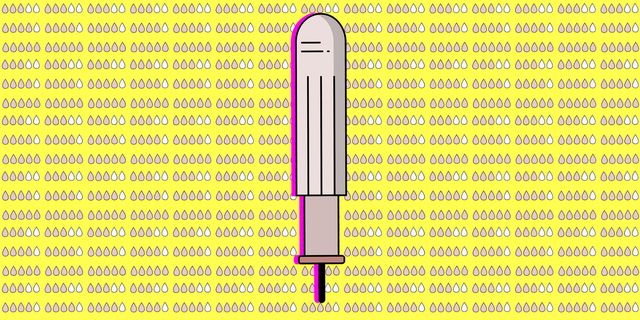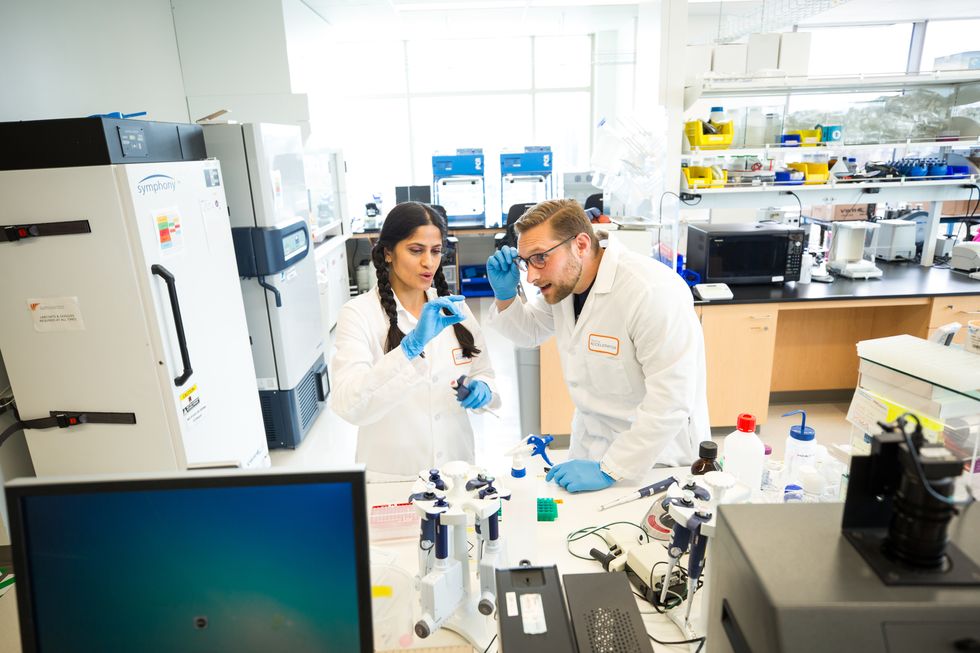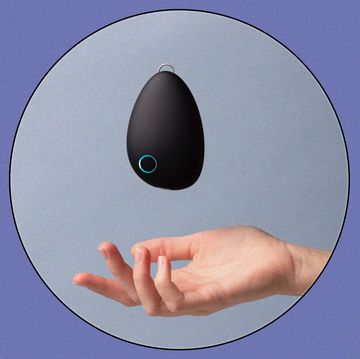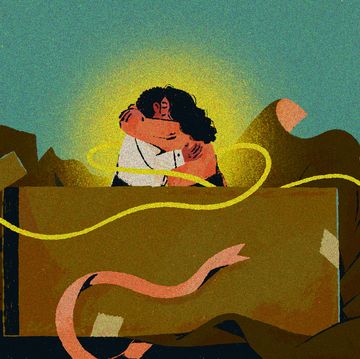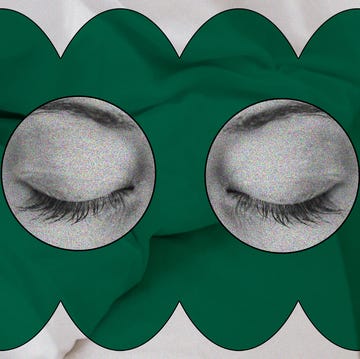Ridhi Tariyal was in her early 30s when she asked her OB-GYN to test her fertility to help her decide when to become pregnant. She wanted to focus on her career, but didn’t want to miss her biological "fertility window." Her OB-GYN brushed off her request, saying such a test wasn’t possible.
As an A-student with an MBA from Harvard University and a Master of Science in biomedical enterprise from MIT, Tariyal had no trouble figuring out that her OB-GYN’s response wasn’t accurate. She quickly found existing research on the anti-Müllerian hormone, a hormone that serves as a predictor of ovarian reserve. Or, as Tariyal put it, "A really good [indicator] for the number of eggs you have left." But her doctor still refused the test, saying she would only approve it for women who had tried for at least a year to get pregnant.
Tariyal had already studied Lassa fever in Sierra Leone and Nigeria for the Broad Institute, and she was in the middle of a fellowship evaluating novel technologies at Harvard, but the argument with her doctor led her to refocus her efforts. She decided to turn her own health into a science project. Her goal was to ultimately develop a method for testing her own fertility, at home, without the need to rely on a reluctant OB-GYN.
Of course, regular fertility tests require a significant amount of blood, so Tariyal’s first challenge was figuring out how to get enough blood for the test. The solution soon presented itself, right on schedule. "Every month, we throw all this valuable information into the trash," Tariyal explains. The answer was obvious: menstruation and tampons.
She understood from the beginning that the idea of implanting diagnostic chips into tampons was a non-starter. "All women think that's creepy," she laughs. So Tariyal and her business partner, biologist Stephen Gire, patented a method to extract blood from tampons and turn it into viable medical samples. Women use their tampons as usual, but instead of throwing them away, they stick them in a specially designed medical box and send them to Tariyal’s company, NextGen Jane.
Tariyal is particularly proud that her method doesn’t require special cooling equipment to keep the samples fresh and viable. “In order to empower women, you have to make it very easy for her to take care of her body,” she says. "Part of the magic [of NextGen Jane] is that you use a tampon like you usually would. We make it so that the tampon can be mailed at normal temperatures. No woman wants to go to the supermarket to get dry ice so she can ship her tampon to us."
In her lab in Oakland, CA, Tariyal dons a white coat over her T-shirt and jeans and readily demonstrates how easy the procedure is: The patented machine, smaller than an espresso machine, accomplishes the task of retrieving a viable blood sample soundlessly and in seconds. "What's really cool is we're getting a biopsy without a speculum or stirrups or any sort of scraping. We're using the body's natural expelling of reproductive tissue."
From a medical standpoint, this innovation is extremely important. According to a recent study, black women are dying from cervical cancer —a cancer often discovered via pap smear — at more than two times the rate of white women. "For cultural reasons, a lot of women from certain ethnic communities are uncomfortable with the entire pap smear procedure," Tariyal says. "Often these are the very communities that are underserved. [N]ew technology can open new ways to improve their health care."
Through her work, Tariyal discovered that the tampon method can even be used during times when a woman does not have her period. "We're able to use the tampon to characterize her microbiome. When women begin to have cervical cancer, their microbiome often shows a change. It's a game changer," she says.
Yet it was a problem no one was working on. Perhaps that's because three-quarters of all hygiene products for women have been designed by men, and more than 90 percent of investors are male, too. Tariyal has quite an array of stories to tell about her efforts to sell her tampon machine to a room full of suits. "One said this only helps half of the population," she recounts with a half-smile and an eye roll. Another asked if she couldn’t extend the tests so that men could test their testosterone. A third requested if the tests could be adjusted so that men could test their sexual partners for STDs.
Despite these roadblocks, Harvard supported Tariyal’s efforts by paying for the first clinical trial and even the patent lawyers. But the first patent was only the beginning.
Her next trial will focus on endometriosis, an often painful condition that befalls 10 percent of women globally. On average, it takes a woman in the U.S. seven to 10 years until she finds out she has the disease. "40 percent of women who go into IVF clinics have undiagnosed endometriosis," Tariyal says. "Often a woman's chance to become pregnant has been lost by the time she gets the diagnosis. It's essential to catch it early. There are so many startups now that are focused on short-term fertility, [like] period tracking apps, but what we're concerned about are issues that women are delaying childbirth further and further. STDS, cancer, etc. are all part of the issue. Someone has to do fertility management on a much larger scale."
In the meantime, Tariyal has come to a decision about her personal query that started her on this journey: She tests her own fertility with her patented method regularly. "I'm always the first one to sign up for my own trials!" she says. Just last year she had some of her eggs frozen, ensuring that she’ll have time to develop the smart tampon to market maturity and — one day — have a baby.
Michaela Haas is a reporter, coach, and consultant. She is the author of "Bouncing Forward," "Dakini Power," and the new "Crazy America."
Get Shondaland directly in your inbox: Subscribe Today
